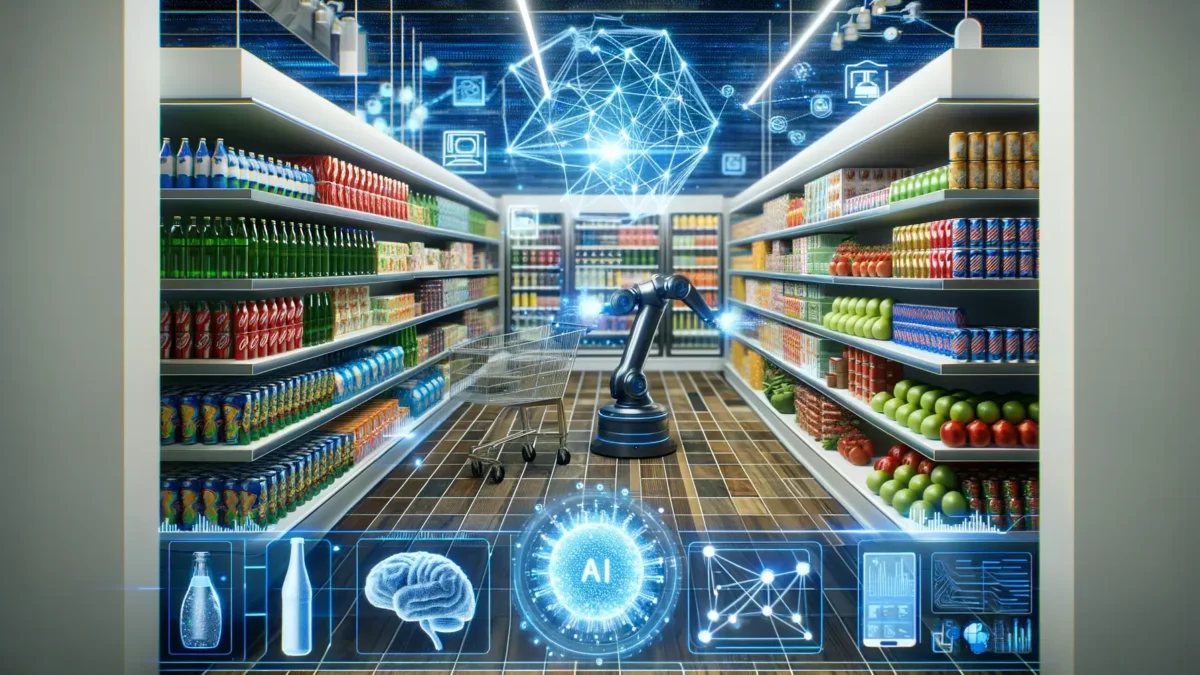Fromaviation to education, AI has revolutionized every walk of life, and fast-moving consumer goods are no exception. With demand at an all-time high, rapid advancements have become essential to keep up with the pace of the world around us, and artificial intelligence allows us to do precisely that.
AI has allowed industries to analyze mammoth amounts of data, optimize their supply chains, and gauge consumer behavior, introducing significant necessary changes to the operation, marketing, and innovation of the FMCG sector. This guide covers how FMCG companies can explore and leverage the advancements AI has brought to stay competitive in the field.
Customer Insight
The key to success in the industry is understanding what your customer base wants. The deeper your insight into consumer behavior, the better your marketing strategies will be. This is where AI comes in. With its ability to analyze consumer data from multiple sources, including social media, purchase history, and online behavior, AI can help you develop a deep understanding of consumer preferences. AI can also enable real-time analysis of consumer feedback, allowing you to quickly adjust your services or marketing strategies in response to changing consumer preferences or market trends.
Understanding user needs is critical to crafting personalized and targeted marketing campaigns. Your goal is to make your brand as relatable to the customer as possible to boost engagement, loyalty, and sales.
You may also like: The Digital Art Revolution: How Technology is Shaping Creative Expression
Optimizing The Supply Chain
The supply chain is the backbone of the consumer goods industry, wherein a flaw in one link can disrupt the entire chain and negatively impact your sales and brand image. You can start by introducing AI-driven automation in logistics and distribution. Doing so enhances efficiency by optimizing delivery routes and ensuring faster delivery times.
Predictive maintenance is the most crucial stage in the supply chain where AI can be implemented. AI-powered predictive analytics help forecast product demands, reducing the risk of overproduction or stockouts. This optimizes inventory management and ensures customers get what they want and when they want it, which is the ultimate goal of the FMCG sector.
Product Innovation
A big chunk of consumer goods success depends on how innovative your products can get and how quickly. With AI, you can fast-track this process by simulating product performance and consumer acceptance before a product is produced. Another step you can use AI for is identifying gaps in the market and predicting future needs. This would allow you to innovate faster and bring new products to market more efficiently.
These steps reduce the time and cost involved in product development, enabling quicker iteration and refinement of new products.
Industry Insight
As vital as it is to always be on the lookout for consumer behavior, it is equally significant to gauge what’s going on in the industry regarding AI. Some of the best sources for this information are newsgroups and public discussion forums, such as those on Usenet. Investing in Usenet may be one of the best decisions you make in the FMCG sector. Look for thebest budget Usenet provider options to quickly access niche discussions, specialized knowledge, and valuable insight about incorporating AI into your industry that might not be readily available through mainstream channels.
Engaging with the business community while sharing ideas and discussing challenges is one of the most efficient ways to stay on top of industry developments and foster collaborative problem-solving. This can provide unique insights into emerging trends and consumer behavior, helping companies innovate and remain competitive.
Consumer Engagement
The ultimate goal of the FMCG industry and its marketing strategies is to keep consumers hooked. This can be done by targeting their interests and providing a seamless service experience. AI can easily tackle this. For instance, AI-driven chatbots and virtual assistants offer 24/7 customer support, answering queries and resolving issues quickly. This improves customer satisfaction by providing efficient service.
Similarly, you can use AI to enhance their online shopping experience by recommending products based on individual preferences and previous purchases. This leads to higher conversion rates and a more satisfying consumer shopping experience. In physical retail environments, AI can tackle the predictive maintenance of in-store equipment, such as refrigerators or checkout systems.
Conclusion
As technology continues to advance, it is no surprise to see how AI is reshaping the FMCG sector, along with several other industries andprofessional services. By embracing AI and staying informed, you can offer unprecedented new opportunities for growth, efficiency, and consumer engagement. It all comes down to how quickly you can adapt to these changes and transform your marketing, supply chain, and other industrial strategies accordingly.
Featured Image: Dall E





